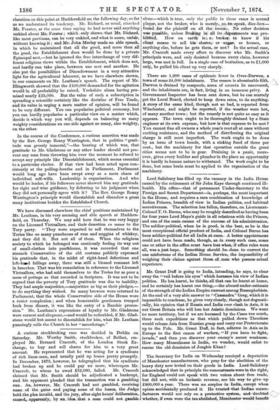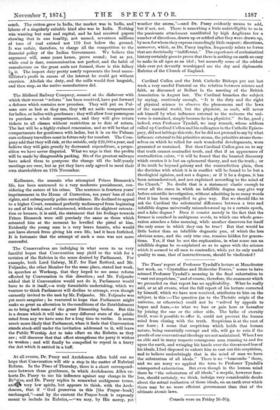The Secretary for India on Wednesday received a deputation of
Manchester manufacturers, who pray for -the abolition of the heavy duty now levied on their goods in India. Lord Salisbury acknowledged that in principle the remonstrants were in the right, for Ragland could not speak with two voices about free trade, but did not, with an inelastic revenue, see his way to -give up £800,000a year. There was no surplus in India, except when opium accidentally produced it He trusted-that Indian manu- facturers would not rely on a protective system, and- doubted whether, if even were the tax abolished, Manchester would benefit -much. The cotton grew in India, the market was in India, and lalsottr of a singularly suitable kind also was in India. Nothing Wall:wanting but coal and capital, and he had received . papers showing that in one locality, not -named, seventeen niillions' -of tons of coal existed -not 170 :feet below the ground. It was unfair, therefore, to charge all the competition to the financial policy of the Indian Government. We believe this argument will, some years hence, prove sound ; but as yet, while coal is dear, communication not perfect, and the habit of manufacture on the great scale not formed, there is this fallacy I ll, it. The import duty pretty nearly represents the local menu- h`M—stver's profit in excess of the interest he could get without exertion. Abolish the duty, and the mills would-first languish, and then stop, -as the native manufactures did.



































 Previous page
Previous page